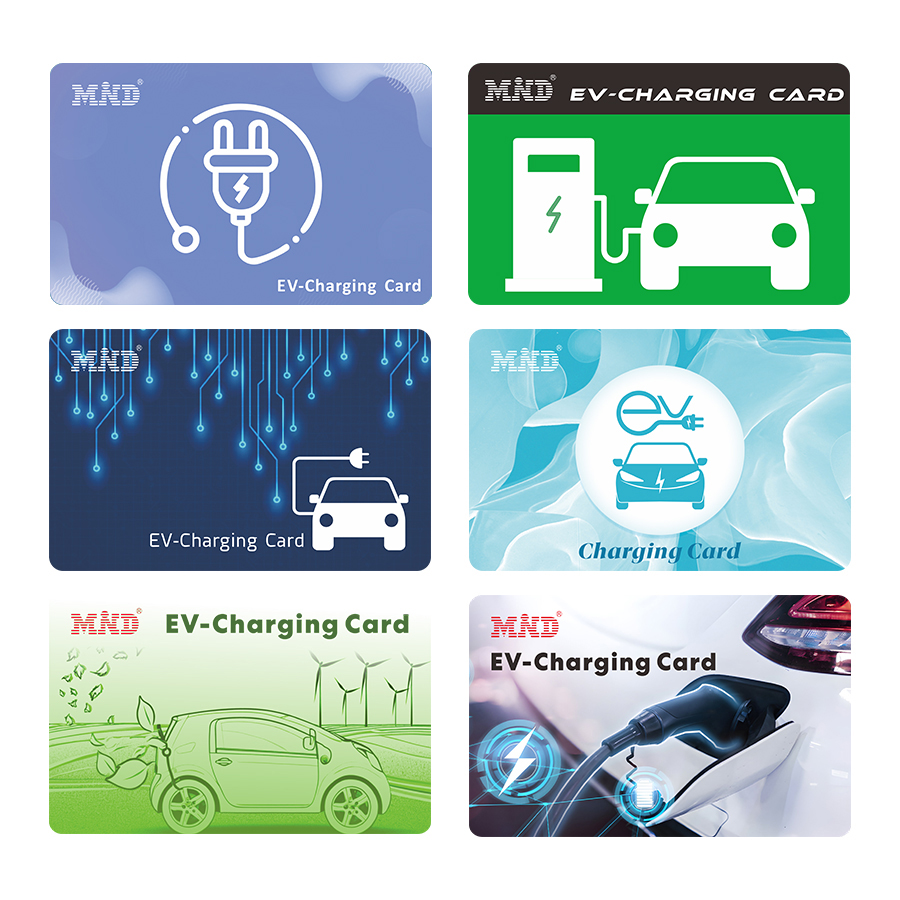With the rapid increase in the penetration rate of new energy vehicles, the demand for charging stations,as the core infrastructure, is also growing day by day. However, the traditional charging mode has exposed problems such as low efficiency, numerous safety hazards, and high management costs, which have become

difficult to meet the dual needs of users and operators. Therefore,Chengdu Mind has launched an intelligent solution for new energy charging stations based on RFID technology. Through technological innovation, it realizes unmanned management, non-intrusive services, and security guarantees for charging stations, providing a practical and feasible path for the intelligent transformation of the industry.
The rapid increase in the number of new energy vehicles has made charging stations a “must-have” necessity. Users’ demands for charging speed, distribution of charging stations, and transparency of charges are constantly rising, but the traditional model is unable to simultaneously optimize these aspects. Secondly, the reliance on human labor leads to low efficiency. The traditional charging process requires manual operation for starting and stopping, settlement, which is not only time-consuming but also has problems such as poor equipment compatibility – some charging stations often fail to accurately identify vehicle parameters, resulting in “no power supply” or “slow charging” situations. Thirdly, there are potential safety risks. Problems such as untimely equipment failure warning and unstandardized user operations may trigger safety accidents like overload or short circuit. Fourthly, the industry’s intelligent

wave is driving forward. With the development of IoT and big data technologies, the transformation of charging stations from “single charging devices” to “intelligent energy nodes” has become a trend. Unmanned management has become the key to reducing costs and enhancing competitiveness.
Focus on the dual improvement of user experience and operational efficiency:
Realize the “unconscious charging + automatic payment” closed loop – Users do not need to manually operate. Through RFID tags, they can complete identity verification, start charging, and after charging is completed, the system will automatically settle the bill and deduct the fee, and push the electronic bill to the APP. This completely eliminates the cumbersome process of “waiting in line for charging, manually paying the fee”. By using RFID technology to precisely identify charging piles and vehicles, operators can monitor the equipment status and charging data in real time, achieving the transformation from “passive maintenance” to “active operation and maintenance”. Multiple encryption technologies are adopted to protect user information and transaction data, preventing tag cloning and information leakage. At the same time, it complies with international privacy regulations such as GDPR to ensure user rights.
Users can start the charging process by swiping their personal IC card or using the vehicle-mounted RFID tag. After the reader reads the encrypted UID stored in the tag, it uploads the information in real time to the platform for verification of permissions. If the user has a bound account and is in a normal state, the system will immediately start the charging process; if the permissions are abnormal (such as insufficient account balance),
the service will be automatically suspended. To prevent security risks, the scheme employs AES-128 encryption technology to protect the tag information, preventing cloning and theft. It also supports “one card for multiple vehicles” and “one vehicle for multiple cards” bindings, meeting the needs of scenarios such as family sharing.
After the charging is completed, the platform automatically calculates the fee based on the charging duration and the remaining battery level, supporting two payment modes: pre-payment and post-payment. In the case of pre-payment users with insufficient account balance, the system will issue an early warning and suspend the charging. Enterprise users can choose to settle monthly, and the system will automatically generate electronic invoices, eliminating the need for manual verification.
The RFID tags installed in vehicles store core parameters of the battery (such as the remaining battery charge level SOC and the maximum charging power). After being read by the charging station, the output power can be dynamically adjusted to avoid situations where a “large vehicle is pulled by a small one” or a “small vehicle is pulled by a large one”. In low-temperature environments, the system can also automatically activate the preheating function based on the battery temperature feedback from the tag, thereby extending the battery’s service life and improving charging efficiency.
Post time: Oct-04-2025





